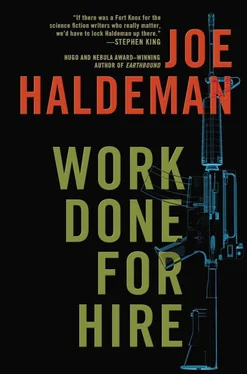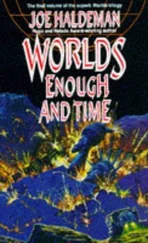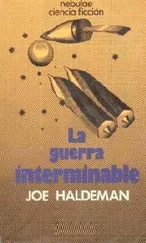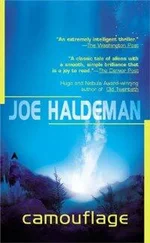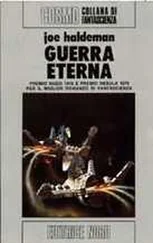“What is it?”
“Keep going south, she said. First get a good night’s sleep.”
“Sure. Lots of luck on that.”
I put the recorder on the end table. “And leave this, she said. I guess we should assume they can hear everything we say.”
She nodded. “I hope you all eat shit and die,” I said to the recorder. “I mean that sincerely. I want to watch.”
“I don’t know if we should provoke them,” she said quietly. “These people are crazy.”
“And I’m fucking getting there.”
__________
We hadn’t slept two hours when the sun started to show through the blinds. I set up the coffeemaker and we squeezed into the shower together, unsexily. One small bar of soap and no shampoo.
Over a breakfast of acid coffee and stale chocolate-chip cookies, she said it before I could: WE CAN’T HANDLE THIS BY OURSELVES, she wrote down. COPS OR FBI OR WHAT?
I nodded and wrote, HOMELAND SECURITY? ASSASSINATION? She thumbed a query on her iPak and showed me the screen: a map of Springfield, Illinois, with an arrow pointing to the Homeland Security office.
We didn’t say anything about it; just got in the car and headed east. It might have been an excess of caution, but we didn’t even use the car’s route guide; she’d drawn out a map on a piece of paper.
__________
About two hours of secondary roads through farmland and small towns, then a half hour on high-speed cruise, and we parked below an oblong grey building with extrusions like upside-down ells, which managed to look both heavy and arachnid.
“Imposing,” she said.
“Haunted by the ghost of J. Edgar Hoover. I don’t suppose we want to take the gun in with us.”
The reception area was arctic cold and government-grey. The room listing by the elevator didn’t have a Department of Mysterious Weapons Left in Cars, so we opted for Domestic Terrorism.
A matronly clerk listened to our story and settled us in a waiting room with a curious selection of magazines, a mixture of well-thumbed hunting and fishing journals with three pristine copies of Harvard Law Review , not the swimsuit edition. After more than an hour, she asked for my driver’s license and escorted us into the office of agent James “Pepper” Blackstone.
Blackstone was a slightly plump pale white man with aquiline features. He seriously studied us as we came in and sat down, and then glanced at the screen inlaid on his desktop. There was nothing else on the desk, and nothing on the walls but a standard picture of the president and a calendar.
“This rifle,” he said with no preamble, “we knew it was in your trunk, of course, before you got out of the car. If you’d tried to take it out of the trunk, you would have been stopped.”
“Good to know you guys are on the ball,” I said, and he didn’t react. “Of course the rifle is why we’re here.”
He looked at his screen.
“You found it in your car… twice?”
“Once outside my door,” I said. “I left it in Iowa City, in the trunk of a parked car, but someone evidently retrieved it and put it in our motel, while we went out for dinner last night. They also broke into my apartment and took the mailing carton it had been in.”
“Why would they do that?”
“ I don’t know! To scare me.”
He considered that for a long moment. “A preliminary investigation shows three sets of fingerprints.”
“You took it out of my car?” Kit said.
“It’s a weapon associated with a crime, Ms. Majors. We’re allowed to.” He didn’t look at her. “Your fingerprints, Mr. Daley, and those of the two Iowa state troopers. There are no other fingerprints at all, which is interesting. What is more interesting is that the surface of the rifle is completely sterile, outside of those points of contact. There’s not one nanogram of organic substance. It’s as if the weapon had been autoclaved and then put in the car’s trunk by someone wearing sterile gloves.”
“Not just wiped clean?” I said.
“No; that might obliterate the fingerprints, but there would still be traces of organic material, or perhaps of a solvent used to remove it. This was a very careful job.”
“Well, I’m glad it’s not just a bunch of amateurs.”
“I wouldn’t rule that out. Amateurs can be compulsive.” He took off his glasses and leaned back in his chair, which squeaked, and began a long soliloquy. “Being a writer, Mr. Daley, perhaps you can appreciate this: the tropes of terrorism and the mechanical aspects of spy business are so deeply imbedded in our culture that private citizens have used them to harass other private citizens; make them think they’re being followed by someone—us or the FBI, the CIA, the KGB… or some mysterious organization whose three initials are known only to a few. Ask yourself this: If you had the desire to do to someone else exactly what is being done to you… would it be impossible? Would it even be difficult? If you did have the desire and the money to spare.”
I thought for a second. “The rifle is common enough, though I’m not sure how I could buy one without leaving a paper trail. Hire somebody to do it; a mule, I guess. The phone calls could be made with throwaway cells. But these people know exactly what I’m doing, all the time, as if they were in the same room! How could I do that?”
There was a single knock at the door and a bland young man in a coat and tie strode in, put a manila folder on the desk, and left.
Blackstone spent a few seconds looking at each of three sheets of paper. “On June eleventh of last year, someone who looks like you and had your driver’s license bought that rifle at a sporting goods store in Des Moines.” He slid over one sheet, a grainy photograph apparently from a store’s security camera. A person who looked something like me was buying an M2010-AW9.
“That’s not me,” I said. “I mean, I know it’s not me because I wasn’t there; I’ve never been in that store. But it doesn’t really look like me, anyhow.”
He took the picture back and examined it. Shook his head and got a jeweler’s loupe from a drawer and looked again. “Maybe, maybe not. Can you explain the driver’s license?”
“Well, no. Not if they had the neutron-counting thing.” I’d been sent a new license a couple of years ago with the ID dot: traces of two radioactive elements, the proportions different for each person’s license, impossible to forge. Some small stores didn’t have the neutron counters, but probably all gun retailers did.
He handed me my license. “This checks out. It is the one that was used to buy the gun.” He looked at Kit. “Ms. Majors, you are a mathematician. You know Occam’s razor.”
I knew that one; the simplest explanation is probably the right one. But she knew the whole thing: “Entities must not be multiplied beyond necessity.”
“Exactly. So for your story to be true, Mr. Daley, these are the entities: a miscreant had to steal your driver’s license before June eleventh, use it to buy a weapon, and return it undetected to your wallet before today. That is not impossible. But a simpler explanation is that the picture is you. And you had some arcane reason for setting this up.”
I looked at Kit. “That’s what I said you people would say. That it was just a publicity stunt.”
“Can you prove you were somewhere else on June eleventh?”
“June tenth is my birthday,” Kit said. “He took me out to dinner in Iowa City—did you use a credit card?”
“Probably.”
“That’s less than compelling. You could still be in Des Moines the next day.” He slid the picture an inch toward me. “I think the burden of proof is on you.”
“We slept together,” she said, her voice strained. “I was with him the next day, and he didn’t buy any gun .”
Читать дальше
